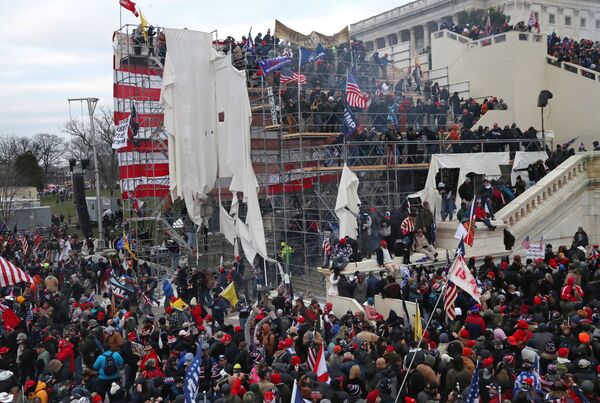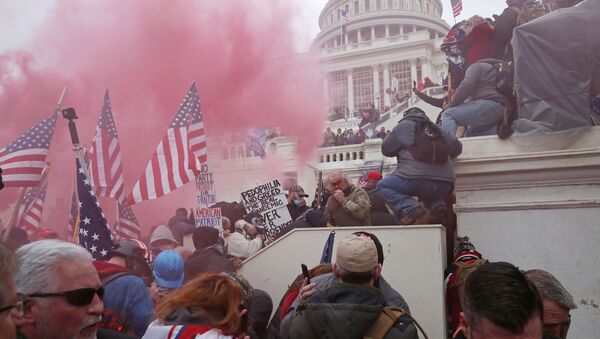The US government’s counterintelligence chief said on Tuesday that people in the law enforcement and security communities are “going to have to be held accountable” for the January 6 insurrection in Washington, DC, which he said was driven by “home-grown violent extremism” similar to radical terrorist groups abroad.
“I’ll let the investigations play themselves out … I think the investigation will be long, it’ll be thorough. People died, and I think a lot of folks are going to have to be held accountable both in the law enforcement community, in the security community,” William Evanina, director of the National Counterintelligence and Security Center (NCSC) and the principal counterintelligence and security advisor to the director of national intelligence, told the Washington Post’s Ellen Nakashima in a Tuesday interview.
Evanina added that “the perpetrators who stormed the Capitol” are “just about as un-American as we’ve seen in a long time.”

On Monday, two US Capitol Police officers were suspended for allegedly helping the pro-Trump insurrectionists to storm the national legislature last week, according to US Rep. Tim Ryan (D-OH), who noted another 10-15 officers are under investigation as well.
As Sputnik reported, it’s not just the officers tasked with the security of the Capitol who are being investigated: across the United States, police forces and military units are probing potential involvement in the failed putsch by their members. From the plethora of video and photographic evidence accumulated during the event, dozens of people have been identified, ranging from retired military personnel to Republican state legislators and members of neo-Nazi and other white nationalist groups. Numerous instances of potential collusion between the insurrectionists and the police have appeared as well.
The US Justice Department said on Tuesday afternoon it expects “hundreds” of cases to soon be filed in connection with the uprising.
Numerous political figures, including US President-elect Joe Biden, whose election victory the insurrectionists attempted to void during the Wednesday putsch, have condemned the participants as “domestic terrorists.” Evanina noted the term is imprecise, but agreed there were similarities.
Evanina told the Post he saw “logical parallels” between how his agency understands the radicalization of terrorists happens abroad and the creation of the “home-grown violent extremism” on display at the Capitol. He said the situation demands a “paradigm shift in how we look at this activity.”

Thousands of Trump supporters mobbed the US Capitol on the afternoon of January 6 immediately after the conclusion of a rally hosted by Trump outside the White House. In a stormy speech, Trump urged his followers to “stop the steal,” continuing a monthslong mantra that the November 3, 2020, election results were fraudulent. Congress had convened on Wednesday to certify the results of the election, which showed Biden as the winner. While the rioters succeeded in temporarily dispersing Congress, it reconvened after the rioters were evicted from the Capitol and finished the certification process.
Biden is due to be sworn in on January 20, but Trump has waffled on a commitment to a peaceful transfer of power in the week since the uprising. While on the evening of the riot he condemned violence and later seemed to concede defeat to Biden in a roundabout way, Trump has since reportedly walked those statements back in private.
Trump spent weeks promoting the January 6 rally on social media, but in the hours after the insurrection, the mixed messages he sent on social media platforms prompted Facebook and Twitter to shut down his accounts for allegedly violating rules regarding glorification of violence.
Evanina said that while Twitter is a private company that made a “business decision,” the situation calls for a “whole-of-American-society, maybe a blue-ribbon panel, to really look at where we’re going to go with social media and free speech.”
“Society needs to now come to grips with where we are with that safe space between First Amendment rights and the ability and willingness of private companies to do what they want on their own platforms,” the counterintelligence chief said. “I personally think that a private business has the right to do what they want to do, but my concern is: who is that behind the keyboard making the determination that what Bill says should be restricted but what Ellen says is not restricted?”
He added that “like the government, private-sector organizations and software companies, big tech, have an obligation to protect America.”


